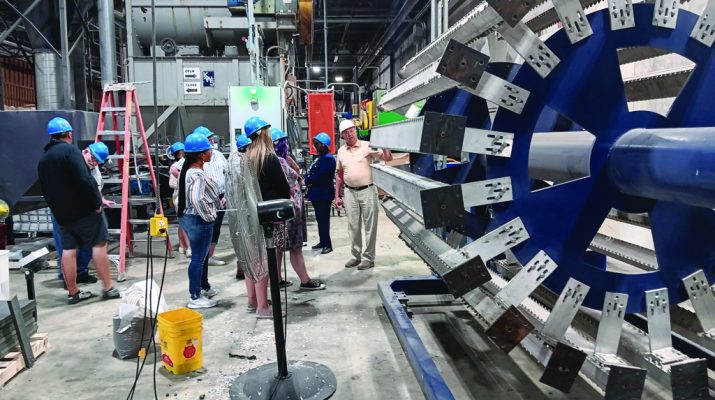Omaha is a fair drive regardless of route. Keep Nebraska Beautiful hosted its annual conference there the first week of June. The way out seemed suited to rural relaxation via Highways 2 and 92. Two older gents played cribbage as I paid for gas station oil and coolant at a Sandhills junction. A Broken Bow barista claimed I sounded like Billy Bob Thorton. A section of what the traffic sign described as bumper-to-bumper in NDOT language prompted a departure from the interstate at Kearney on the way back via Ansley on Highway 2 again. There were plenty of hours to anticipate then contemplate three days that built on topics from previous conferences.
Keep Alliance Beautiful is one of about 20 Keep America Beautiful affiliates in Nebraska. Looking around the modern conference hall of Scooter’s Coffee National Headquarters (never thought about where that was before) the opening morning, It appeared that just about everyone made the trip, including our neighbors from this side of the timeline: Chadron, Scottsbluff, Sidney, Kimball, Ogallala and North Platte. The initial agenda listed three tours. The final version, handed out before the first speaker, pared it down to two yet kept an outing to the annual fundraiser: An Evening with KNB @ James Arthur Vineyard. Organizers took attendees’ suggestions to heart combining a mix of speakers/presentations, affiliate working sessions and time outside for first-hand observation.
Thursday, after lunch at a sports bar and grill down the hill, everyone carpooled to Firstar Fiber a mile or two to the west. I expounded on the enormous MRF (materials recovery facility) a few years back after our own Keep Alliance Beautiful staff visit. Typically, everything our hauler, Spud Rowley at Keep Kimball Beautiful, brings to Western Resources Group in Ogallala ends up there. This time, I was anxious to see an expansion added since that visit – a production line that takes the orange Hefty energy bags (a program that collects pliable and otherwise non-recyclable plastics) to produce dimensional lumber and related products.
Dale Gubbels, former CEO/president of Firstar, led my group as we split in two. Taking us through a door in the breakroom, Dale highlighted the orange bag operation first. Now retired, he talked about being able to see things come to fruition following more than 40 years in the recycling industry. “We had been seeing a lot of wrappers and things come in through the ‘wishful recycler’. We became the first MRF to become a permanent (Hefty energy bag) facility,” he said, listing a few other cities coming online soon.
Since my previous walk through Firstar, the KAB recycling center has witnessed a steady increase in orange bag plastics from 6,516 pounds in 2020 to 15,332 pounds last year. Dale showed us the finished products first: a set of extruded pallets formed from a 50/50 mix of orange bag plastic and post-industrial resin, assembled picnic tables and lumber stacked by size. He said they are looking to set up a research and development operation “to keep our material flowing for a lot of things.”
This operation was on the drawing board when I visited before. Samples of plastic decking KAB has to show the public came from Canada. Now, Dale explained, the Omaha plant sends 20-ton shipments of pellets at a time to Ontario while putting the bags’ contents directly into the extruder on site.
Though still occupying a much larger footprint than KAB’s recycling center, the orange bag facility was not quite as big as I had anticipated. We try to educate patrons about what goes into the bags yet Firstar picks out a range of unwanted material as loads arrive from around the state. Gesturing to the “bag breaker”, Dale said the number one culprits are bottles, magnets and metal. The extruder heats at 140-165 degrees fahrenheit. Fans cool the plastic after it enters a rotating wheel of forms to make different sized boards – around 100 a day.
It is gratifying to see what would have been, at worst, litter blowing in the wind or an eventual deposit of microplastics in the landfill become a needed material before your eyes. I would like to see the lumber and whatever else that production line will make sold in Alliance sometime in the near future. Dale said that he was planning to meet with Circular Colorado this month as the company strives to create in-state markets.
“Recycling is not looked on as a value,” he emphasized. The former CEO talked about Extended Producer Responsibility and how packaging can be designed to be recycled better from the start. Now the Nebraska Department of Environment and Energy is looking at regulation, he added. “This is such a hard industry to understand,” he said.
Recycling is often considered part of waste management. Dale explained, “There is no such thing as waste. There is a misinterpretation of resources.”

